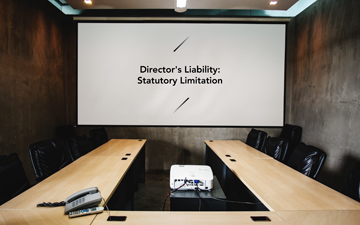An ethical workplace culture can prevent corporate fraud by aiding whistleblowers

Four Canadian accounting professors say corporate codes of conduct can offset the failures of audit committees in helping to prevent fraud
 |
From left to right: Richard Fontaine, a professor in the department of accounting sciences at the Université du Québec à Montréal (UQAM); Hanen Khemakhem, a professor in the department of accounting sciences at UQAM; Nadia Smaili, a professor of accounting (forensic accounting) at UQAM; and Mahbub Zaman is a professor of accounting at the University of Hull. |
WHISTLEBLOWING is a cornerstone of corporate governance. It allows employees to anonymously disclose questionable financial matters about their companies to help prevent fraud, which is a pressing issue in Canada. It’s also incredibly effective, with 42 per cent of occupational fraud being reported through tips.
But whistleblowing is not just an essential organizational tool — it’s also codified into law. In Canada, whistleblowing procedures are outlined in a national regulation called National Instrument 52-110. This regulation has been in place since 2004 and applies to all companies listed on stock exchanges throughout Canada.
It states that the board of directors, through its audit committee, must establish a set of procedures that provide anonymity and confidentiality to any employee that wants to disclose a questionable financial matter.
Despite this regulation, recent research by us suggests that boards of directors, in fact, are not the ones who establish the whistleblowing procedures. Instead, board members depend on management to implement the procedures, which requires a high level of trust between the board of directors and their management team.
A new approach to fraud
For our study, we interviewed members of the board of directors of some of Canada’s largest public companies, along with some auditors. We asked the board members about their involvement in whistleblowing procedures to help prevent fraud.
The board members we interviewed did not believe they were in a position to establish whistleblowing procedures because they were far removed from the day-to-day operations of their corporations.
Instead, the board members highlighted the importance of trusting their management teams to establish effective whistleblowing procedures. One board member said:
“You can’t stop collusion if it’s taking place, but hopefully you can make sure that you have got the right tone at the top, that you got the right controls in place. You are going to prevent frauds as much as possible and it really comes down to a lot of the behaviours that are in the organization, the culture of the organization … the tone at the top is probably the most important.”
But this process only works if the board can trust their management teams, meaning the organization has a healthy ethical organizational culture. Without this culture in place, whistleblowing procedures would be ineffective.
Subverting past studies
Our results differ from past studies, most of which claim that the quality of board members plays an important role in fraud prevention by positively influencing the outcomes of whistleblowing procedures.
One study found that individual characteristics, such as member independence (not being involved in the operations of the company) and financial expertise, were related to positive whistleblowing outcomes. Another found that less busy board members and smaller boards led to more positive whistleblowing outcomes.
One reason for this difference could be our method of inquiry. In the past, most researchers relied on public documents and correlation analysis to establish relationships between the qualities held by members of boards of directors with whistleblowing activities.
In other words, past researchers assumed that, because the quality of the board was related to whistleblowing procedure outcomes inside a company, board members were responsible for implementing whistleblowing procedures.
Building a healthy ethical culture
Our study offers Canadians a different perspective of business management by challenging a long-standing type of corporate governance theory known as agency theory.
This theory assumes that the board of directors, which represent the interests of shareholders, should not be overly trusting of management teams because management normally looks out for its own interest. Agency theory dictates that boards should be skeptical of management practices and, in the case of fraud prevention, establish their own whistleblowing procedures for management teams to follow.
Our results suggest the contrary — instead of distrusting management, corporations should promote a healthy ethical culture as a means of preventing fraud. The primary way of achieving this is with an effective code of conduct.
Having a code of conduct alone can dramatically reduce fraud in companies. According to the 2020 Report to the Nations by the Association of Certified Fraud Examiners, companies that have a code of conduct lose 50 per cent less funds to fraud when compared to companies that don’t have a corporate code of conduct.
Codes of conduct are sets of policies and procedures that every employee adheres to. It should include all employees at all levels in the company — including upper management. How upper management adheres to the company’s code of conduct is what we refer to as the “tone at the top.” This tone, in turn, dictates how healthy a company’s ethical culture is.
Richard Fontaine and Hanen Khemakhem are professors in the department of accounting sciences at the Université du Québec à Montréal. Nadia Smaili is a professor in accounting (forensic accounting) at the Université du Québec à Montréal. Mahbub Zaman is a professor of accounting at the University of Hull.
Read the original article with full hyperlinks on The Conversation Canada. Top image: iStock. Author photos: The Conversation Canada.










(0) Comments